This article was co-authored by Zora Degrandpre, ND. Dr. Zora Degrandpre is a Natural Health Doctor and Licensed Naturopathic Physician in Vancouver, Washington. She is a grant reviewer for the National Institutes of Health and the National Center for Complementary and Alternative Medicine. She received her ND from the National College of Natural Medicine in 2007.
There are 12 references cited in this article, which can be found at the bottom of the page.
wikiHow marks an article as reader-approved once it receives enough positive feedback. In this case, 100% of readers who voted found the article helpful, earning it our reader-approved status.
This article has been viewed 65,403 times.
Glutathione is an important antioxidant that helps keep your cells and organs protected. Unlike many other antioxidants, glutathione is actually made by your body. The amount of glutathione that your body makes is affected by things like your environment, medical issues, and aging. Fortunately, you can actually increase your levels of glutathione naturally by giving your body the building blocks it needs to make it, as well as by reducing stress so your body can keep more of the glutathione that it makes.
Steps
Using Your Diet to Increase Glutathione
-
1Eat more beef and organ meats. Beef and organ meats contain sulfur and alpha-lipoic acid (ALA), both of which regenerates damaged glutathione and promotes the synthesis of new glutathione. Eat a serving or 2 each day to help promote your body’s natural glutathione synthesis.[1]
- Other sources of ALA include broccoli, spinach, Brussels sprouts, peas, and tomatoes.
- Brewer’s yeast is a tasty seasoning loaded with ALA that you can sprinkle over your meal to increase your levels.
-
2Add 1 serving of whole grains to each of your meals. Whole grains such as brown rice, pasta, and wheat bread contain sulfur and selenium, which is a glutathione cofactor that your body needs in order to make more of it. Eating more foods that contain selenium will provide your body with the building blocks it needs to naturally create more glutathione. For each of your meals, make sure you’ve got a serving of whole grains.[2]Advertisement
-
3Incorporate more eggs and dairy products into your diet. Eggs and dairy contain sulfur and the protein beta-casein, which helps your body naturally synthesize glutathione. Eat or drink 2-3 servings of eggs and dairy products per day to give your body the building blocks it needs to naturally make more glutathione.[3]
- Dairy products include milk, cheese, and yogurt.
Note: If you’re lactose intolerant, don’t worry about consuming dairy products. You can get beta-casein from plenty of other food sources!
-
4Work more servings of cruciferous vegetables into your meals. Cruciferous vegetables such as broccoli, Brussels sprouts, cauliflower, and kale are loaded with antioxidants and sulfur compounds, both of which will boost your glutathione levels. Add a serving of cruciferous vegetables to at least 1 of your meals each day to get more sulfur in your diet.[4]
- Other cruciferous vegetables include watercress, mustard greens, cabbage, radishes, and arugula.
-
5Get more vitamin C from fresh fruits and vegetables. Vitamin C works as an antioxidant that helps to protect your cells by attacking free radicals, leaving your glutathione unharmed, which increases the amount that you have in your body. Vitamin C is found naturally in many fruits and vegetables, so add-in 1-2 servings of a natural source of vitamin C with each of your meals.[5]
- Foods that are rich in vitamin C include citrus fruits, strawberries, cantaloupe, bell peppers, broccoli, and cauliflower.
- Snack on some tasty pieces of fruit or vegetables as a snack to boost your vitamin C intake.
-
6Avoid drinking alcohol to maintain high levels of glutathione. Alcohol oxidizes your liver tissue which reduces the amount of glutathione present in your body. If you want to increase your glutathione, avoid drinking alcohol so you don’t deplete your body’s natural levels.[6]
Exercising and Recovering to Increase Glutathione
-
1Use cardio exercises to stimulate glutathione production. Cardiovascular exercises are great for your health in general and help increase antioxidant levels, especially glutathione. Regular and consistent exercise is key to reducing oxidative stress, which increases your body’s glutathione levels. Stick to a consistent workout plan that involves at least 30 minutes of exercise done at least 3 times a week so your body’s glutathione levels will naturally increase in response to the lower amount of oxidative stress.[7]
- Try running, swimming, or cycling to get a great cardio workout.
- Join a gym with group classes that you can consistently attend to develop a routine.
- Work out with a friend so it’s more fun and you’re more motivated.
Workout Tip: For an intense cardio workout that doesn’t require any equipment, try one of these 15-minute HIIT workouts! HIIT refers to high-intensity interval training and involves bursts of all-out effort followed by short rest periods, and you can do them almost anywhere.
-
2Drink a whey protein shake after you exercise. Cysteine is an important amino acid that your body uses to make glutathione. Whey protein is loaded with cysteine and can be easily added to water or milk to make a shake. Drink a whey protein shake right after your workout to help repair and build your muscles while also boosting your glutathione levels.[8]
- Drink at least 1 shake a day to help your body synthesize more glutathione.
- You can also find protein bars that include whey protein if you don’t want to drink a shake.
- Look for whey protein at nutrition shops, department stores, and online.
-
3Recover from your workout to keep your glutathione levels stable. Adequate rest is important to repair your body after a workout, as well as for increasing your glutathione levels. If you don’t get enough sleep after you work out, your body will actually produce less glutathione. Get at least 7-8 hours of restful sleep so your body can repair itself and make more glutathione.[9]
- Avoid working out if your muscles are still sore.
Taking Supplements to Increase Glutathione
-
1Take 420 mg of milk thistle to protect against oxidative damage. Milk thistle extract keeps your cells protected from oxidative damage, allowing the levels of glutathione in your body to increase. Take a daily milk thistle supplement as directed on the bottle to boost the amount of glutathione present in your body.[10]
- If you have any negative reactions to milk thistle supplements, such as hives or difficulty breathing, stop taking them and contact your doctor.
- You can find milk thistle supplements at nutrition shops and by ordering it online.
-
2Use turmeric supplements to reduce oxidative stress on your liver. Turmeric is an herb and a popular spice in Indian cuisine, but it also has medicinal qualities such as protecting your liver against oxidative stress, which increases glutathione production. Take a 1,000 mg turmeric supplement daily to improve your liver health and increase your glutathione levels.[11]
- Turmeric supplements are generally safe for consumption, but if you have any negative reactions, stop taking them.
- You can find turmeric supplements at health and nutrition stores, department stores, and online.
-
3Take vitamin C supplements to boost your glutathione levels. Vitamin C fights against free radicals and increases the concentration of glutathione in your body. Taking a 1,000 mg vitamin C supplement is an easy way to help your body keep more of the glutathione that it makes and increase the levels of it overall.[12]
- Follow the dosage on the packaging so you don’t take too much or you could experience negative side effects such as upset stomach or diarrhea.
- Look for vitamin C pills or as a powder that you can add to water at your local health food store, department store, or order them online.
Warning: While supplements such as milk thistle, turmeric, and vitamin C have purported health benefits and may help increase your glutathione levels, they can potentially have negative interactions with one another or any medications that you may be taking. Talk to your doctor before you take any supplements to make sure they’re safe for you.[13]
Knowing When to Seek Medical Care
-
1See your doctor for a blood test to check for low glutathione. If you suspect you have low glutathione levels, it’s best to check with your doctor before trying to treat yourself. They can do a simple blood test to find out if your levels are low. Then, they’ll help you determine the best way to increase your glutathione. Make an appointment with your doctor if you’re concerned about glutathione.[14]
- A blood test is simple and painless. Generally, your doctor will do it in their office, though they may need to send the sample to a lab for testing.
- Your doctor will also discuss your diet and lifestyle to determine if they may be causing low glutathione levels.
-
2Talk to your doctor before taking any supplements. Supplements aren’t right for everyone, especially if you’re taking medication. Before you start supplementing, tell your doctor why you want to take a supplement and discuss all of the medications you’re taking. They’ll help you determine if the medication is safe for you to take.[15]
- Your doctor may recommend you try lifestyle changes first.
- Glutathione supplements can interact with certain medications.
-
3Work with your doctor if you’re using glutathione to treat a medical condition. Glutathione therapy may be used to treat certain medical conditions. Typically, your doctor will give you glutathione through an IV 1-3 times a week, but they may also recommend oral or inhalant supplementation, as well as supportive treatments, like vitamin supplements. See your doctor if you want to use glutathione to treat the following conditions:[16]
- Anemia
- Parkinson’s disease
- Atherosclerosis
- Diabetes Mellitus
- Cancer
- AIDS
- Chronic fatigue syndrome
- Fibromyalgia
Warnings
- Talk to your doctor before you take any supplements to make sure they’re safe for you and won’t negatively react with any medications that you’re taking.⧼thumbs_response⧽
- If you’ve recently undergone an organ transplant operation, avoid any kind of glutathione therapy to avoid organ rejection.⧼thumbs_response⧽
References
- ↑ https://pubmed.ncbi.nlm.nih.gov/25005184/
- ↑ https://academic.oup.com/jn/article/134/3/489/4688681?utm_source=TrendMD&utm_medium=cpc&utm_campaign=J_Nutr_TrendMD_0
- ↑ https://academic.oup.com/jn/article/134/3/489/4688681?utm_source=TrendMD&utm_medium=cpc&utm_campaign=J_Nutr_TrendMD_0
- ↑ https://academic.oup.com/jn/article/134/3/489/4688681?utm_source=TrendMD&utm_medium=cpc&utm_campaign=J_Nutr_TrendMD_0
- ↑ https://pubmed.ncbi.nlm.nih.gov/12499341/
- ↑ https://pubmed.ncbi.nlm.nih.gov/6759830/
- ↑ https://jissn.biomedcentral.com/articles/10.1186/1550-2783-2-2-38
- ↑ https://academic.oup.com/jn/article/134/3/489/4688681?utm_source=TrendMD&utm_medium=cpc&utm_campaign=J_Nutr_TrendMD_0
- ↑ https://journals.plos.org/plosbiology/article?id=10.1371/journal.pbio.2005206
- ↑ https://pubmed.ncbi.nlm.nih.gov/28735729/
- ↑ https://pubmed.ncbi.nlm.nih.gov/27561811/
- ↑ https://www.researchgate.net/publication/10976604_Vitamin_C_augments_lymphocyte_glutathione_in_subjects_with_ascorbate_deficiency
- ↑ https://pubmed.ncbi.nlm.nih.gov/29932300/
- ↑ https://pubmed.ncbi.nlm.nih.gov/17406579/
- ↑ https://pubmed.ncbi.nlm.nih.gov/18709289/
- ↑ https://pubmed.ncbi.nlm.nih.gov/18709289/
About This Article
Glutathione is an important antioxidant that helps keep your cells and organs protected. If you think your glutathione levels are low, check with your doctor so they can test you and advise you on how to treat yourself. There are plenty of natural foods that will help your body increase your glutathione levels, such as beef, eggs, broccoli, peas, and tomatoes. Whole grains, like brown rice, pasta, and wheat bread, are also great for producing glutathione. For an easy option, take turmeric or vitamin C supplements, but make sure you check with your doctor before taking these. You can also increase your glutathione levels naturally through cardio exercises, like jogging, swimming, and cycling. Try to exercise for at least 1 ½ hours a week. For more advice from our Medical co-author, including how to recover after a workout to keep your glutathione levels stable, read on.
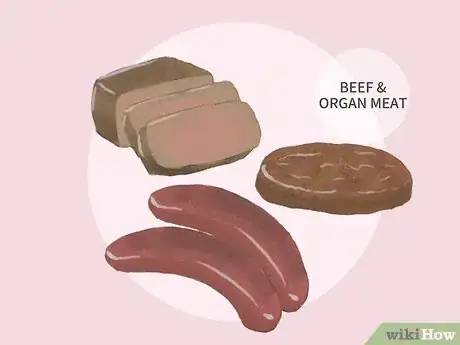
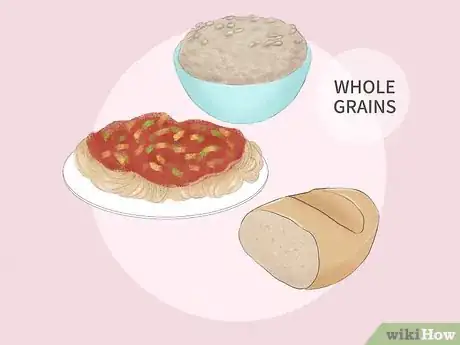



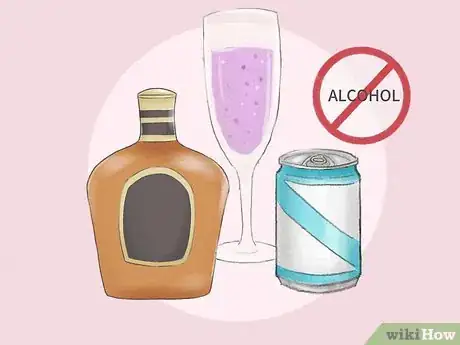



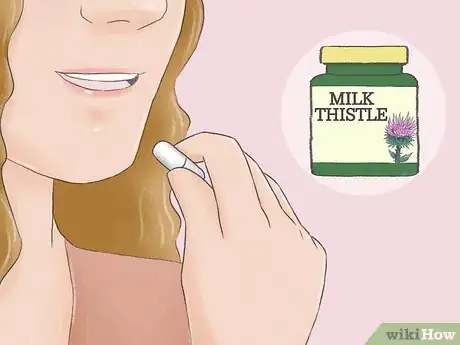
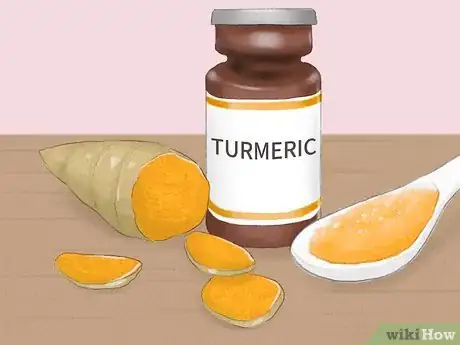
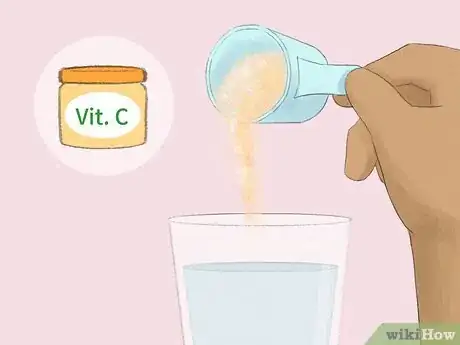

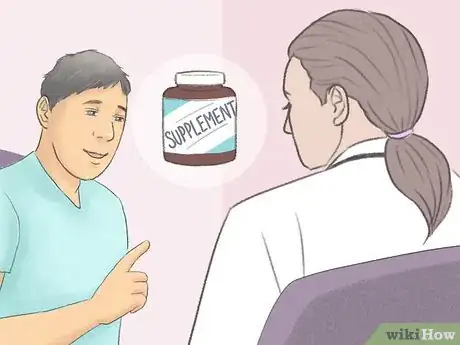






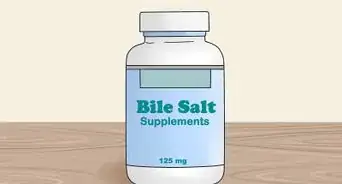

























































Medical Disclaimer
The content of this article is not intended to be a substitute for professional medical advice, examination, diagnosis, or treatment. You should always contact your doctor or other qualified healthcare professional before starting, changing, or stopping any kind of health treatment.
Read More...